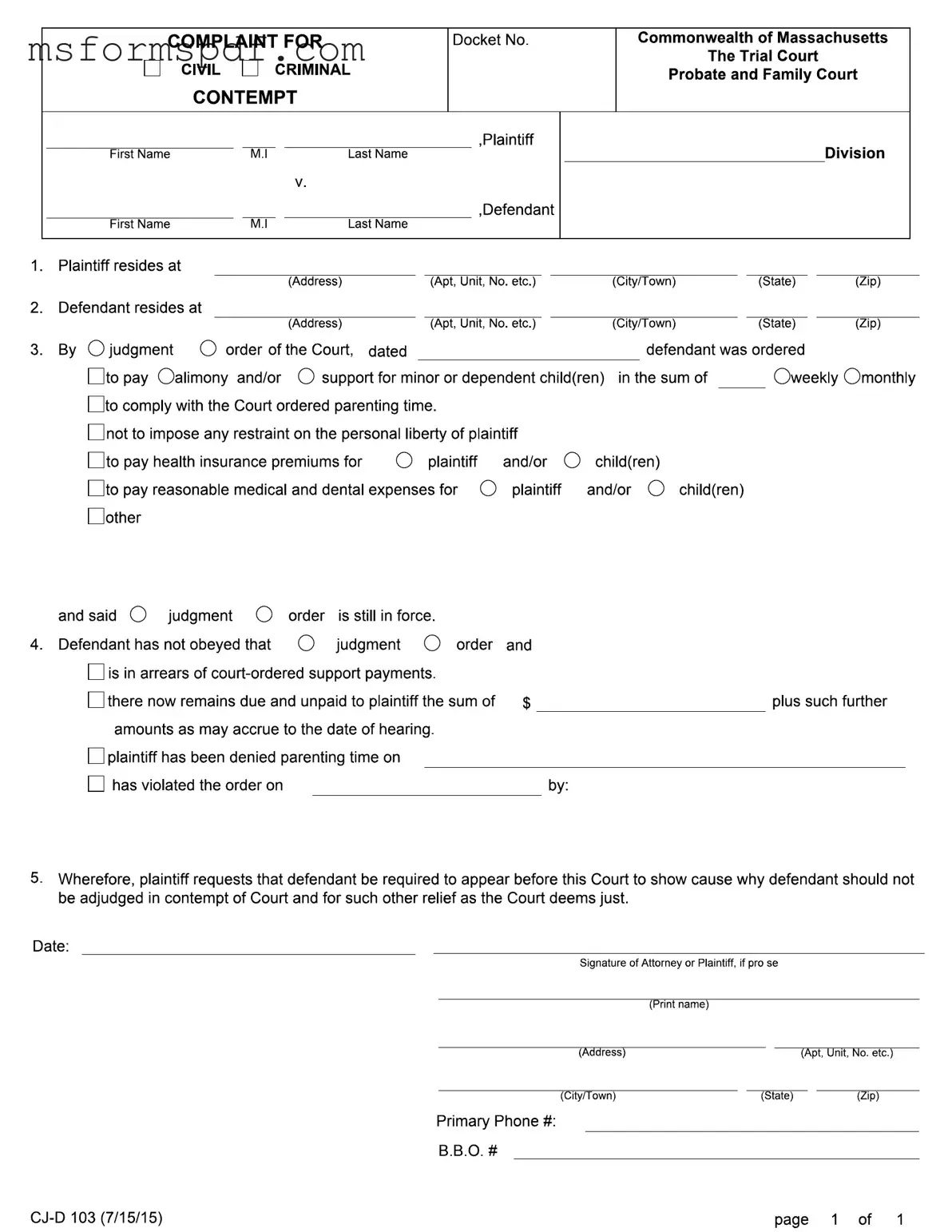Free Massachusetts Complaint For Contempt Template in PDF
The Massachusetts Complaint For Contempt form is a legal document used by individuals to address violations of court orders, particularly in family law matters. This form allows a plaintiff to request that the court hold a defendant accountable for failing to comply with specific orders, such as child support or alimony payments. By filing this complaint, the plaintiff seeks to ensure that the court enforces its previous decisions and provides necessary relief.
Launch Editor Now

Free Massachusetts Complaint For Contempt Template in PDF
Launch Editor Now

Launch Editor Now
or
➤ Massachusetts Complaint For Contempt PDF Form
Just a moment — finish the form
Fill out Massachusetts Complaint For Contempt digitally — no scanning, no printing.